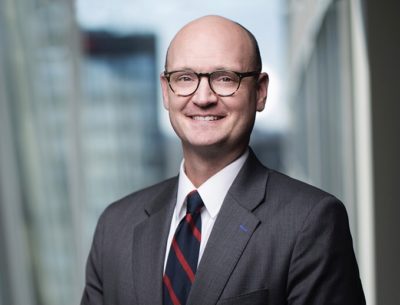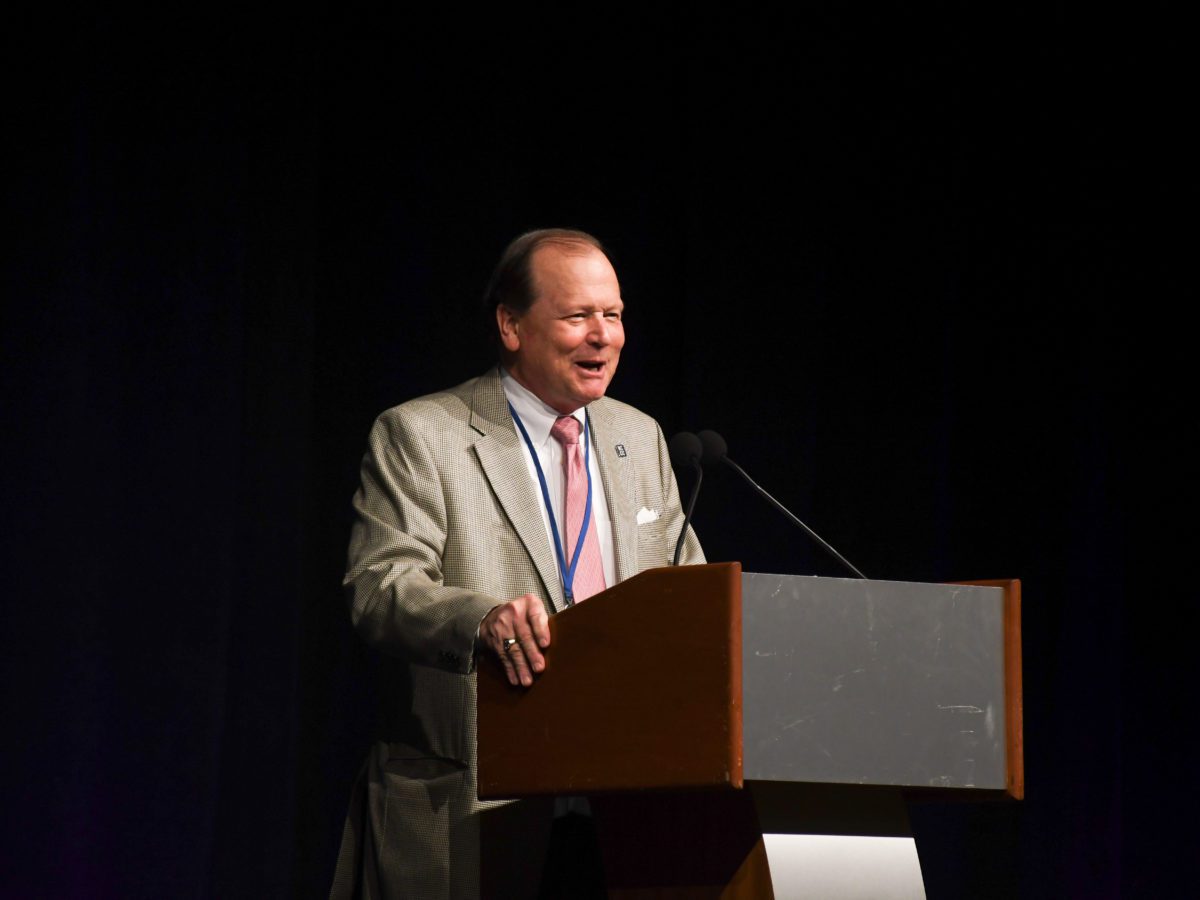
The North Carolina Community College System (NCCCS) hosted its biennial conference last week, marking the first in-person gathering since 2018. Community college faculty, staff, administrators, and partners gathered in Raleigh Oct. 9-11 to learn about promising practices and innovative ideas surrounding postsecondary education.
During his keynote address, interim system president Dr. Bill Carver discussed the role of community colleges in the lives of North Carolinians.
“They (students) trust us to change their lives,” Carver said. He went on to say that students are counting on the system to provide pathways to meaningful careers.
![]() Sign up for Awake58, our newsletter on all things community college.
Sign up for Awake58, our newsletter on all things community college.
Transformation was a common theme threaded throughout this year’s conference. Blue Ridge Community College President Dr. Laura Leatherwood delivered remarks about the responsibility of the 58 colleges to respond to what’s ahead and shape the future of North Carolina.
Leatherwood said three things are key to community colleges transforming both the state and students’ lives: the diversity of the state’s community colleges, collaborators and partnerships, and a disruptor mindset.
“A disruptor mindset embraces innovation to cause radical change in an existing industry or market,” Leatherwood said. “Community colleges are disruptors. We’ve already disrupted higher education and what it looks like.”
Leatherwood pointed to community colleges accelerating their responses to training, courses, and workforce solutions. She also highlighted how colleges across the system have dismantled timelines to deliver solutions that drive and support local economies.
“We’re anticipating what’s next,” Leatherwood said.
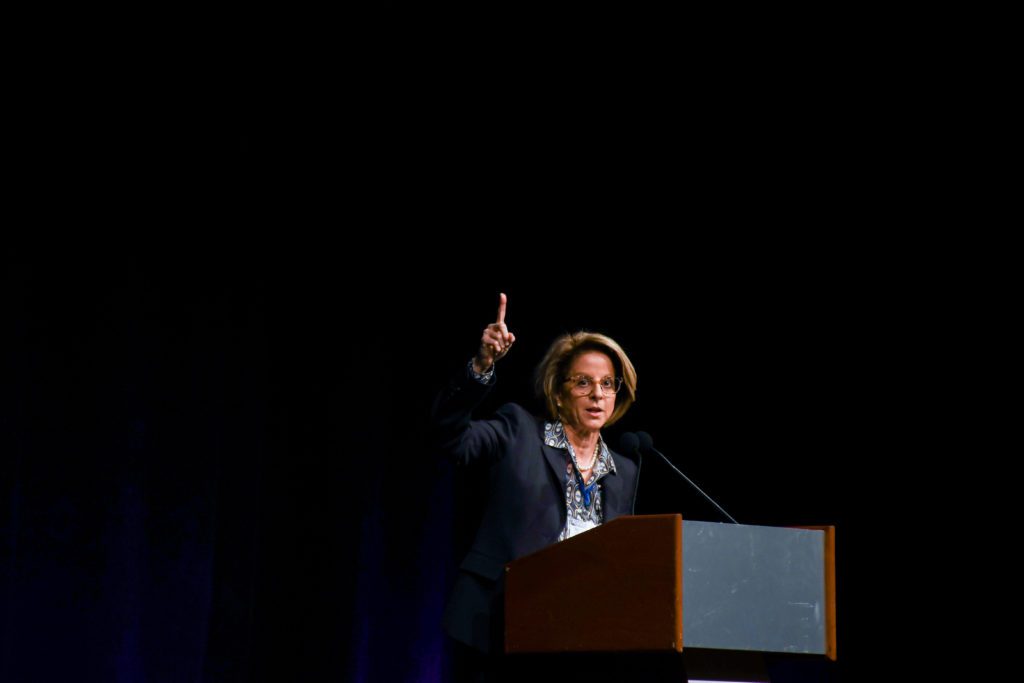
In addition to general sessions, the conference included over 200 concurrent sessions and various roundtable discussions throughout the three days.
Community college personnel, system office staff, and external partners led panels on credentials attainment, diversity, equity, inclusion, student access, workforce development, and more.
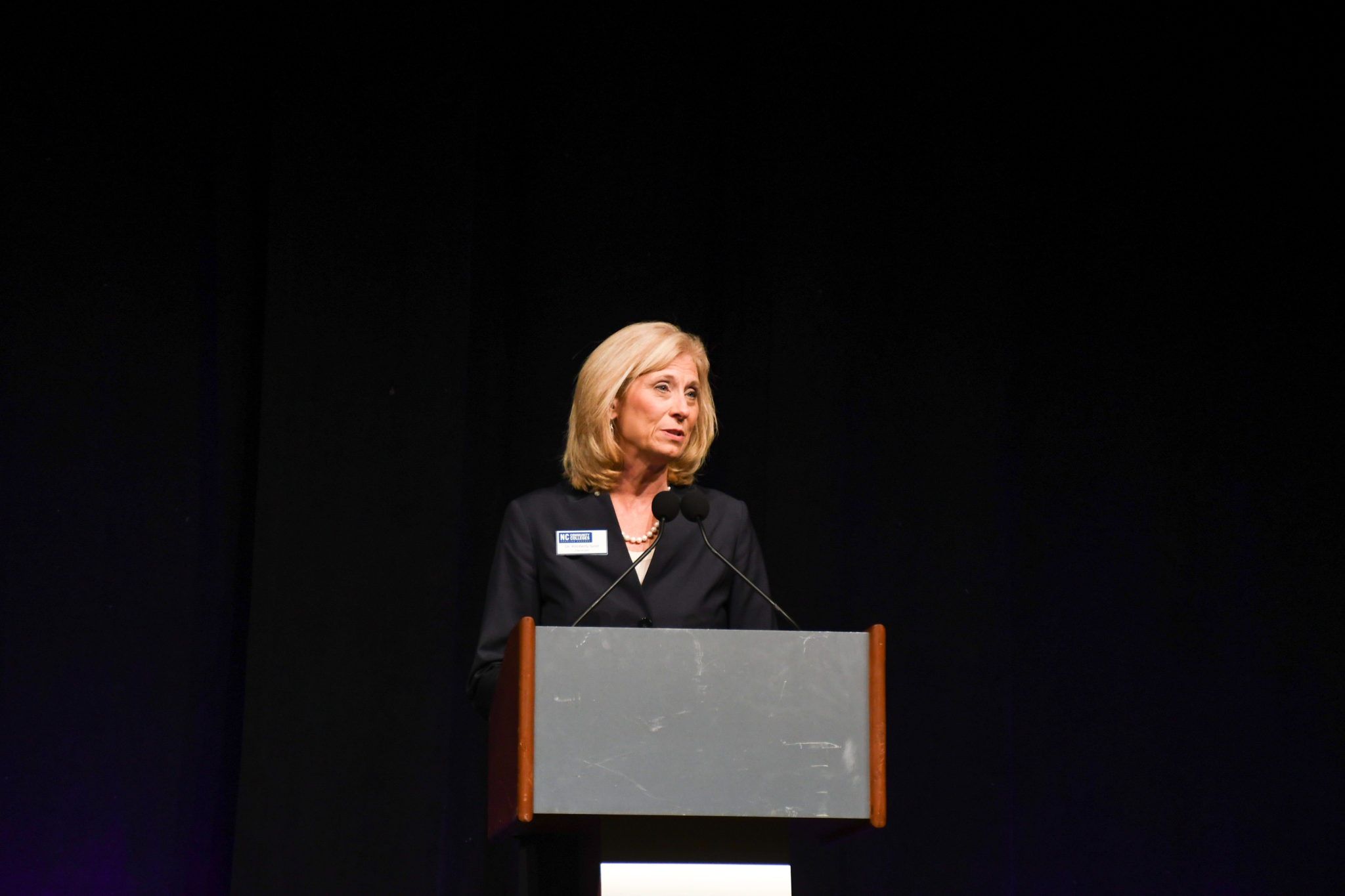
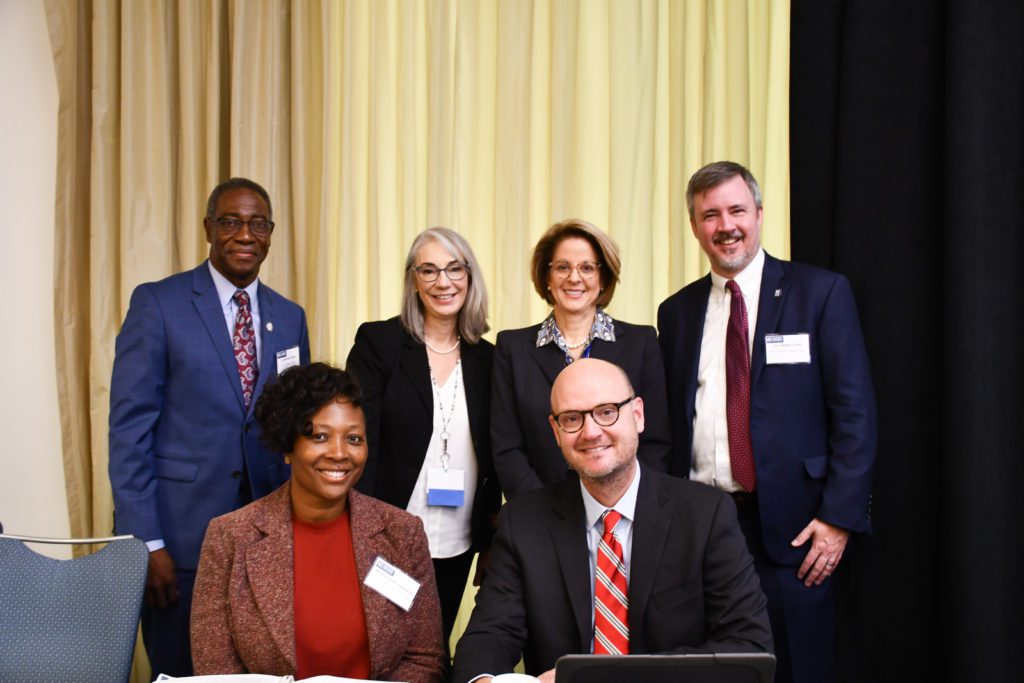
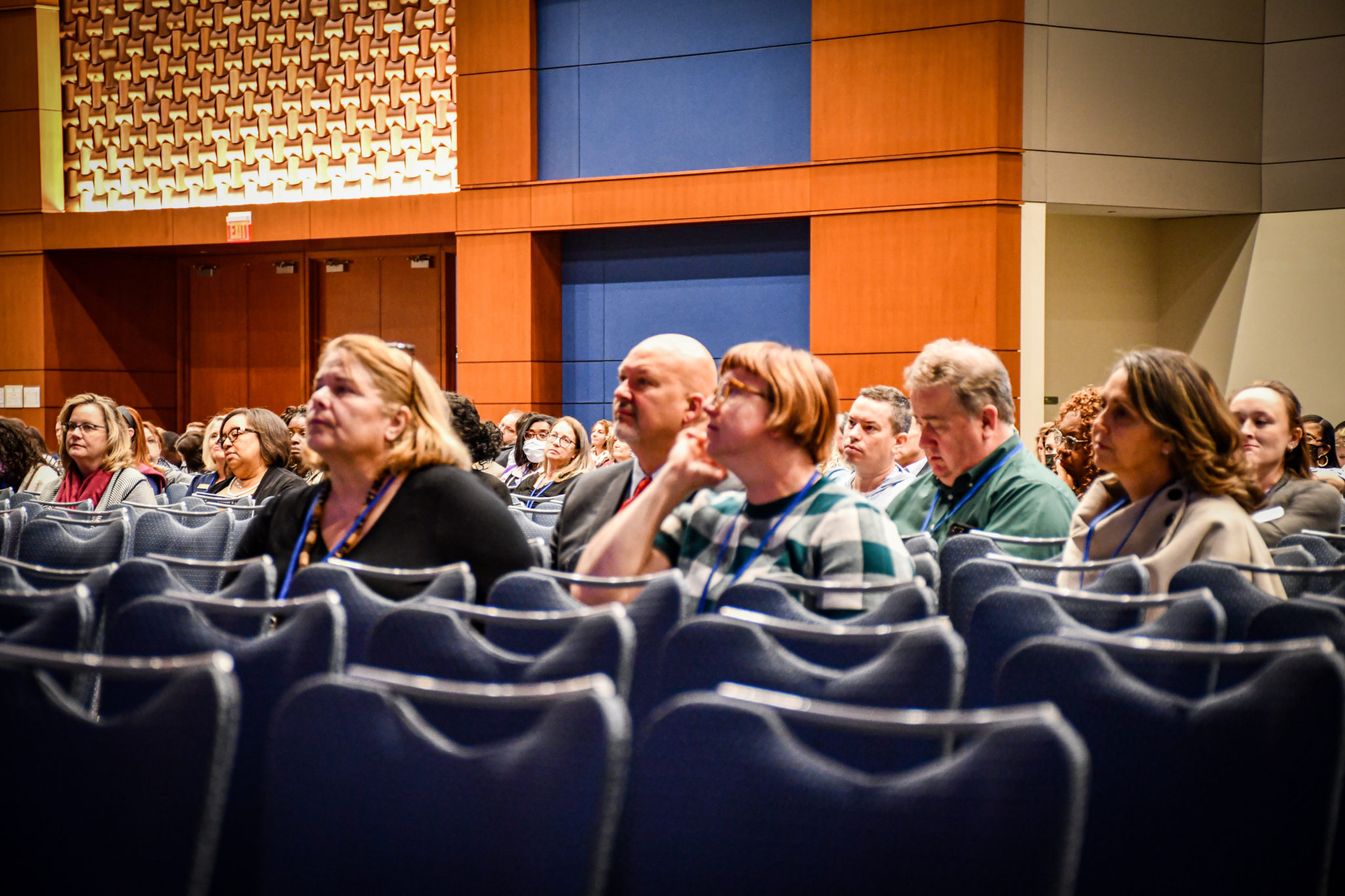
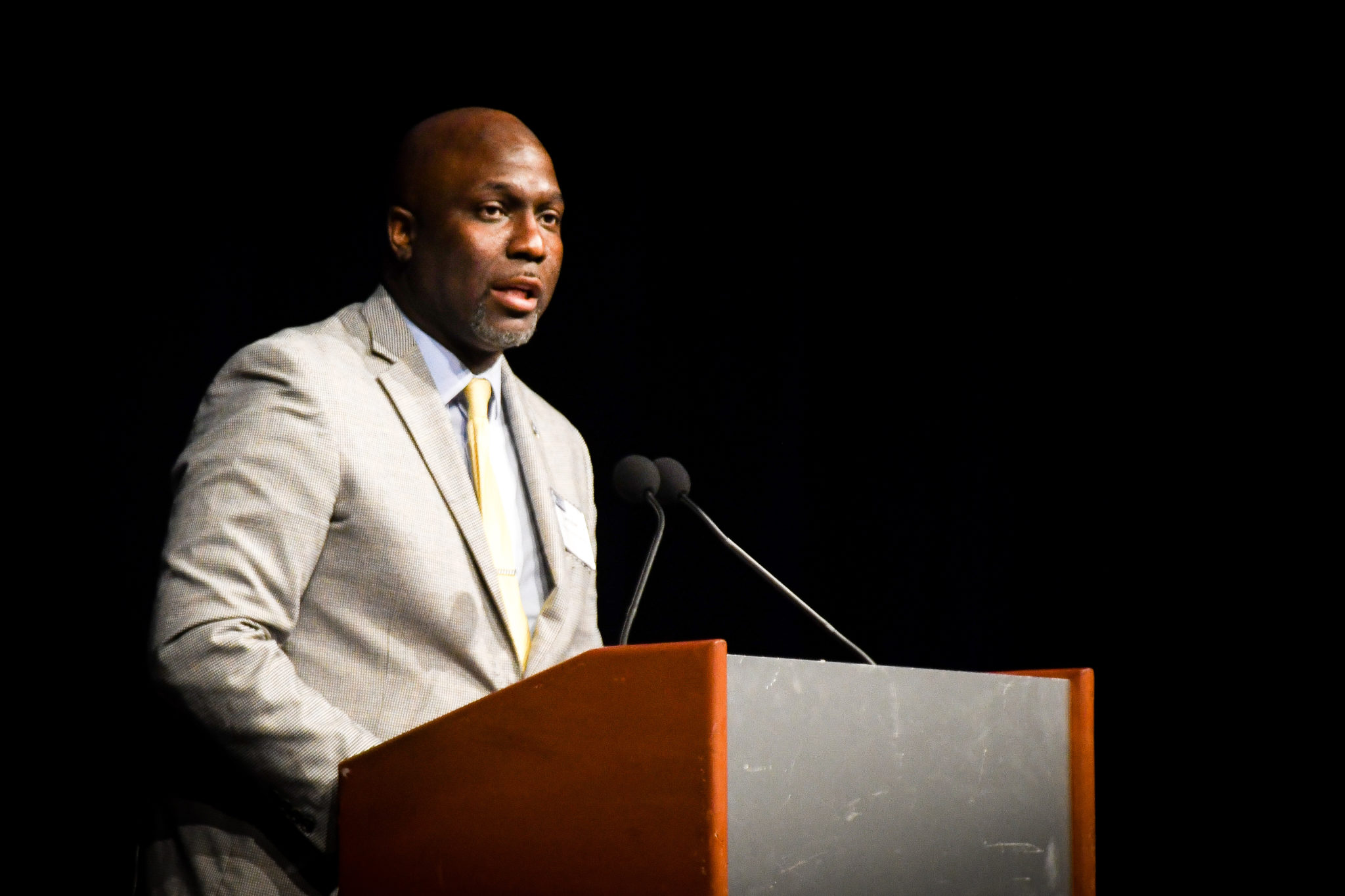
Some of those topics included discussions about initiatives aimed to reengage adult learners, including N.C. Reconnect, an initiative launched last year with support from the John M. Belk Endowment (JMBE) to help North Carolina community colleges bring adult learners back to their institutions. Partners across educational sectors are working together on N.C. Reconnect, focusing on reenrolling students ages 25 – 44 who have some college but no credential. The goal is to help students complete credentials that will allow them to move into a family-sustaining wage career.
“It was incredibly impressive to see so many top community college leaders gathered together to explore ways to help more students succeed. I particularly enjoyed the many sessions devoted to adult learners and the in-depth discussions on not only how to attract more adult learners back to college, but more importantly on how to support their unique needs and help them complete a high-wage, high-demand credential or degree of real value to their area’s local workforce and economy. It is clear this is a growing and important priority for North Carolina’s community college leaders.”
John Crisp, President & CEO of Crisp Communications
Adult learner panels addressed everything from marketing to wrap-around services to revamping the college model. As Mike Krause, former executive director of Tennessee Higher Education Commission and senior advisor for JMBE, discussed, North Carolina is not on pace to meet the 2030 degree attainment goal, but reaching and reconnecting with adult learners will be key to making the necessary gains to meet the goal.
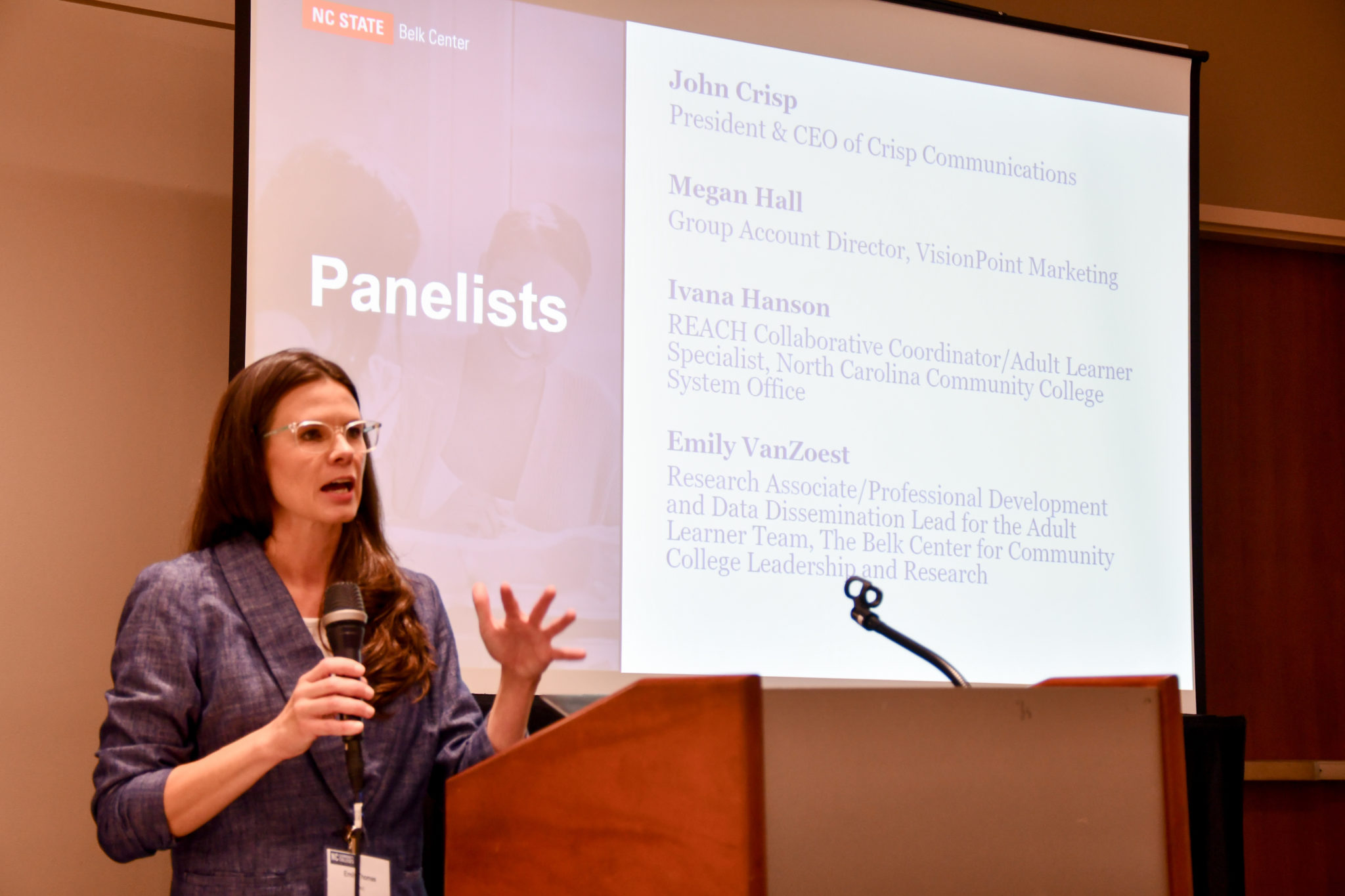
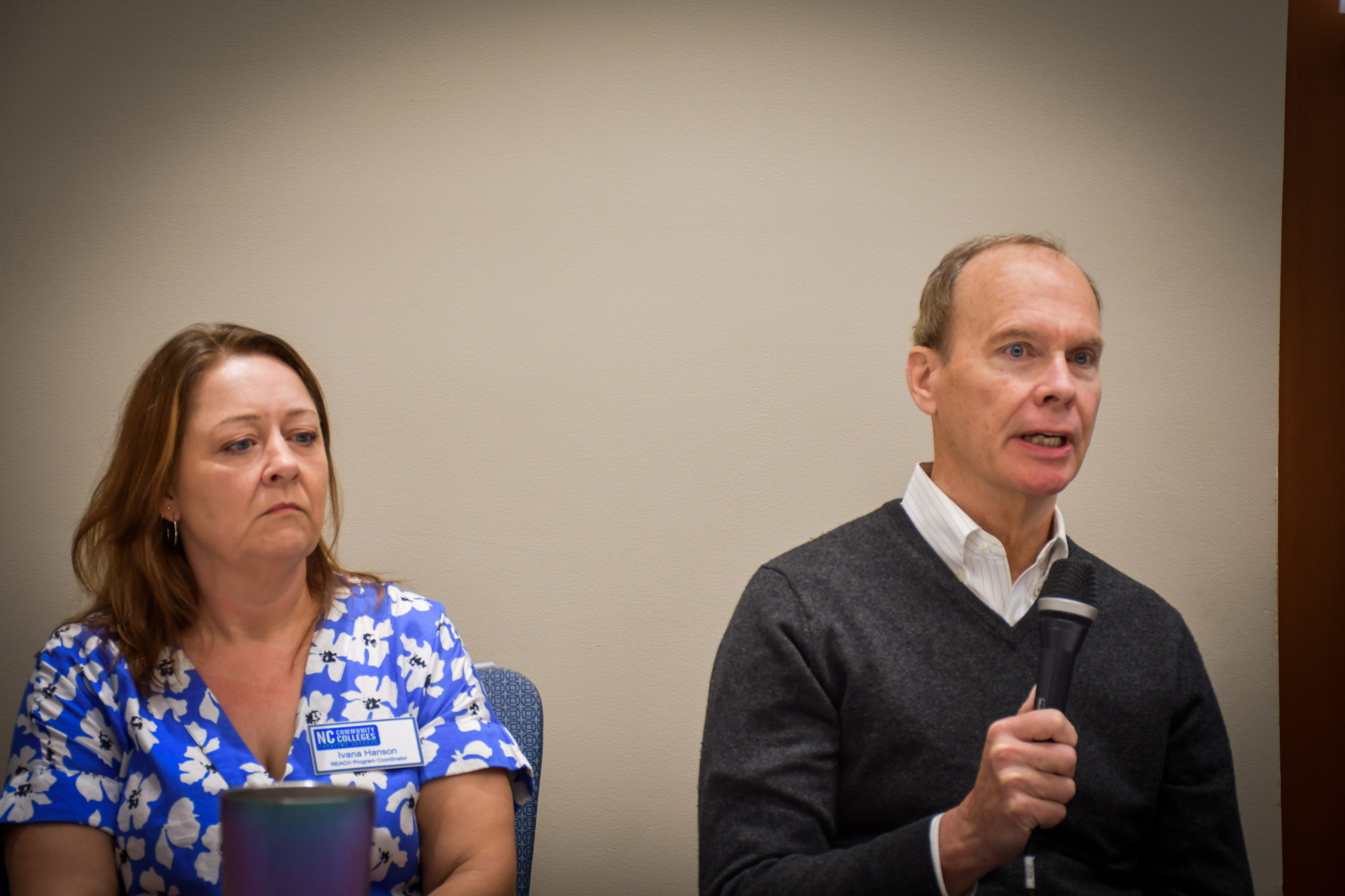
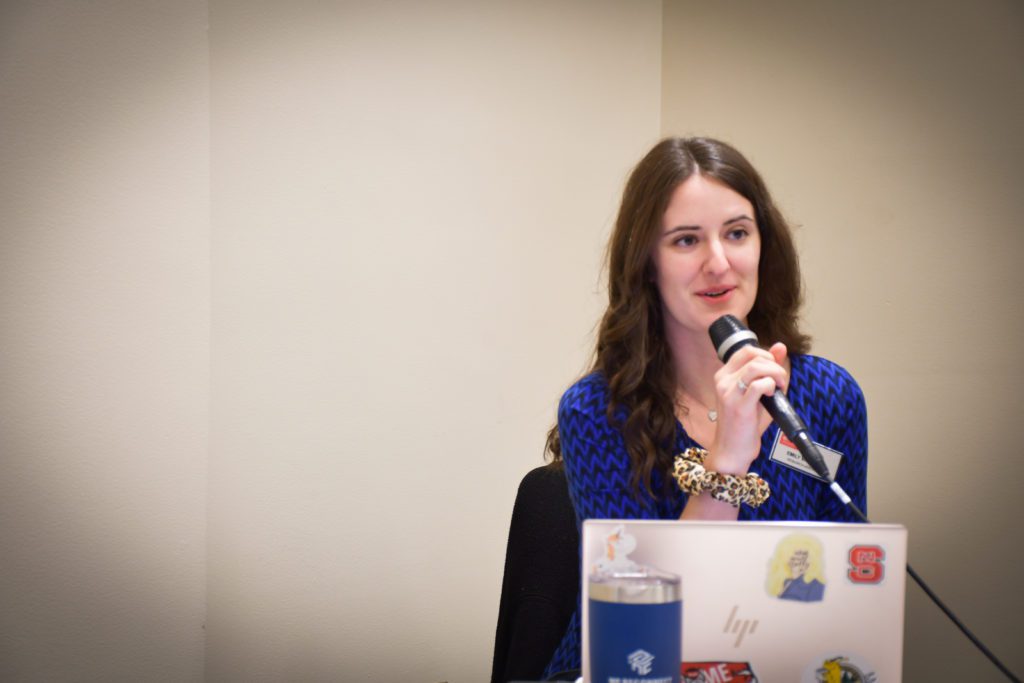
Panelists lifted up making changes to marketing and moving beyond campus walls – going where the students are. They also addressed the importance of building community partnerships and connecting with industry leaders. And perhaps most crucial, panelists highlighted changing attitudes on campus to reach and retain adult learners.
“Whatever you did before probably doesn’t work now,” Leatherwood noted during a panel about serving adult learners via public and private collaboration.
The final general session of the conference focused on holistically serving students. Panelists highlighted ways in which community colleges can expand their work to serve the whole student, including some of their most basic needs like food and transportation.
Sen. Sarah Crawford, D-Franklin, addressed community college leaders from the state perspective.
“You are the advocates in this room. You are the voices for your students. You are the voices for their needs,” Crawford said.
Crawford said not all lawmakers fully grasp the struggles students experience on a daily basis. To be able to have fruitful conversations in the state legislature, she said, it will take lifting up student stories and inviting state representatives to community college campuses so they can hear the stories of students.

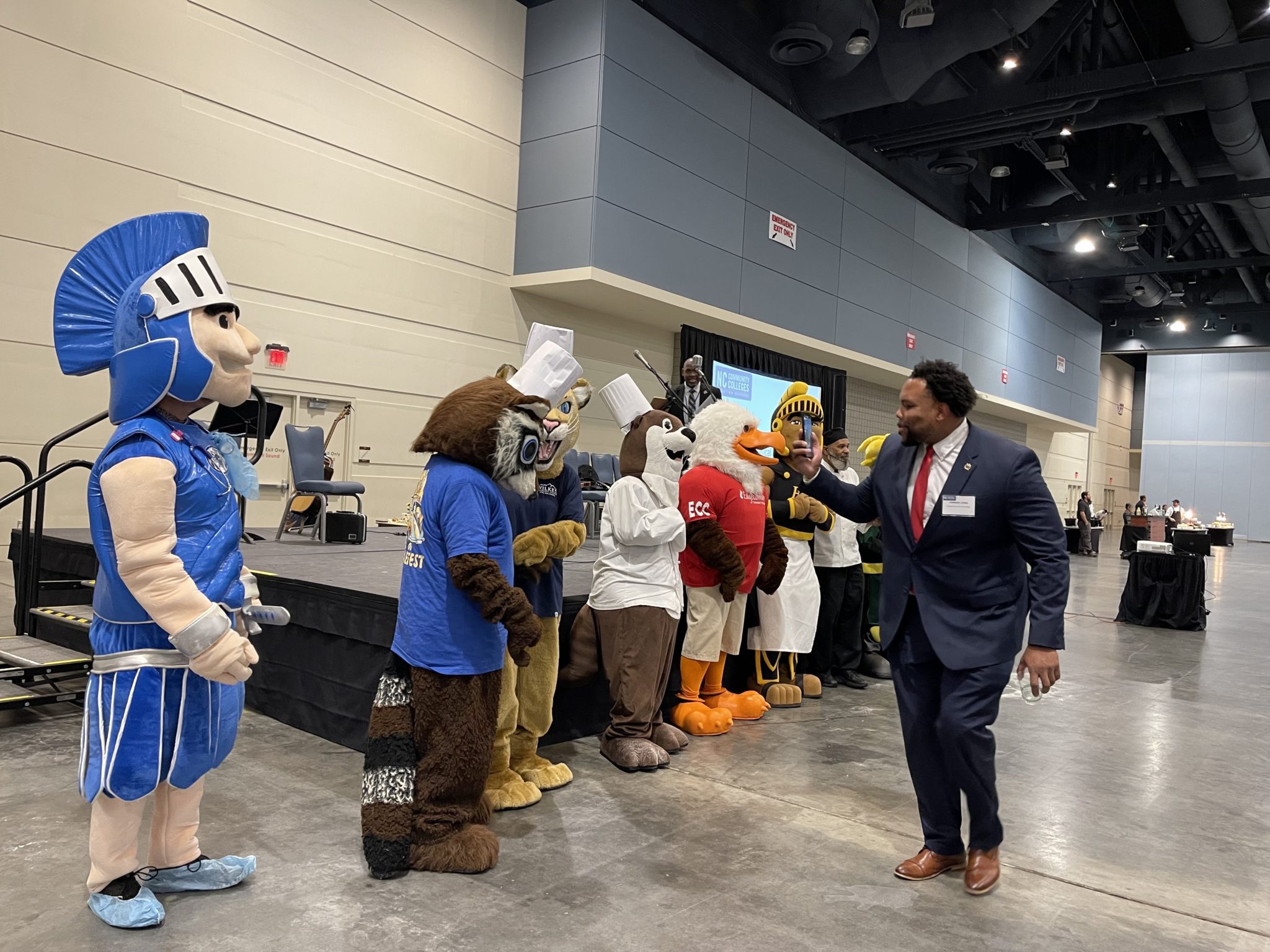

Conference attendees also had an opportunity to engage with over 60 exhibitors, including EdNC, who showcased a variety of services and learning materials.
The exhibit space also included a culinary reception on opening night with over 10 community colleges participating. Students showed their culinary arts skills and provided a sampling to conference attendees.
The next system conference is slated for fall 2024.
Editor’s note: The John M. Belk Endowment supports the work of EducationNC.
Recommended reading
